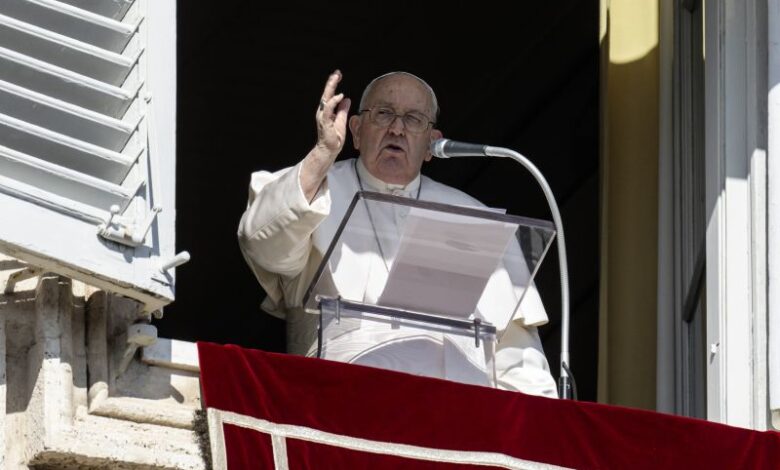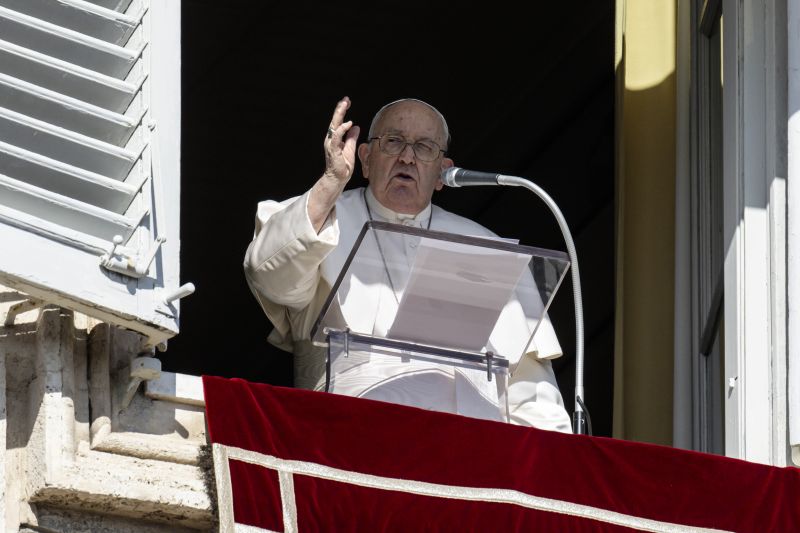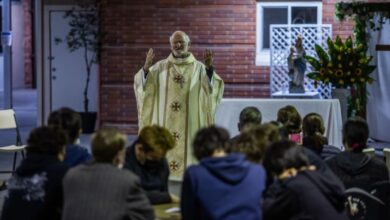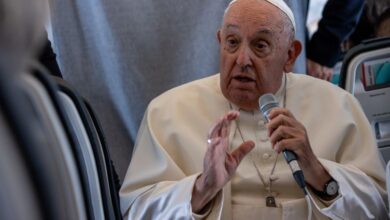Pope Francis: ‘God is always close to us’

 Pope Francis delivers his Sunday Angelus address at St. Peter's on Feb. 4, 2024. / Credit: Vatican Media
Pope Francis delivers his Sunday Angelus address at St. Peter's on Feb. 4, 2024. / Credit: Vatican Media Vatican City, Feb 4, 2024 / 09:22 am (CNA).
Pope Francis reminded the faithful during his Sunday Angelus that Jesus’ example of being “on the move,” in his preaching and in performing miracles, is a reminder that God is never distant but “always close to us.”
Reflecting on today’s Gospel reading from Mark 1:29-39, the pope observed in his exegesis that Jesus, “after teaching in the synagogue, comes out so that the word he preached can reach, touch, and heal people.”
While acknowledging that the idea of a God that “is distant, cold, indifferent to our fate” is prevalent, the pope underscored that today’s reading dispels this notion, revealing to us instead that Jesus shows “to us that God is not a detached master who speaks to us from on high.”
“On the contrary, he is a Father filled with love who makes himself close to us, who visits our homes, who wants to save and liberate, heal from every ill of the body and spirit,” the pope said to the faithful gathered in St. Peter’s Square on Feb. 4.
Summarizing God’s attitude in three key words — “closeness, compassion, and tenderness” — the Holy Father reiterated that God is made known to us and comes “close to accompany us, tenderly, and to forgive us.”
The pope then called upon the faithful to undertake an interior reflection by asking the following questions: “Does faith instill in us the restlessness of journeying or is it an intimist consolation that calms us? Do we pray just to feel at peace, or does the word we listen to and preach make us go out, like Jesus, toward others, to spread God’s consolation?”
Though acknowledging that this literal and metaphorical walking of Jesus “challenges us,” it is our “spiritual task” to answer these questions, which, in turn, will lead us to “convert every day to the God Jesus presents to us in the Gospel, the Father of love and compassion.”
“When we discover the true face of the Father, our faith matures, we no longer remain ‘sacristy Christians’ or ‘parlor Christians,’ but rather we feel called to become bearers of God’s hope and healing,” the pope added.
Following the recitation of the papal blessing, Pope Francis expressed his closeness to all those in China, Southeast Asia, and around the world who are celebrating the Lunar New Year, observing that “this celebration be an opportunity to experience relationships of affection and gestures of attention, which contribute to creating a supportive and fraternal society, where every person is recognized and welcomed in their inalienable dignity.”
The Lunar New Year, also known as the Chinese New Year or the Spring Festival, is a celebration of the new year according to the lunisolar Chinese calendar. The holiday commences on the new moon that falls between the end of January and early February and concludes on the subsequent full moon. This year the celebration runs from Feb. 10–15 and ushers in the year of the dragon.
On Friday, Feb. 2, Pope Francis received a delegation of the Italy-China National Federation in the Apostolic Palace, where the pontiff was greeted by a folkloric dance by the Chinese Martial Arts Academy of Vercelli.
The pope congratulated the group for its work in spearheading “a number of initiatives aimed at fostering dialogue between Italy and China, and seeking to respond to the challenges posed by cultural integration, education, and the promotion of shared social values.”






